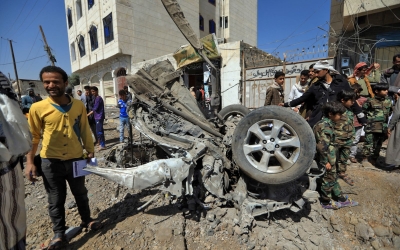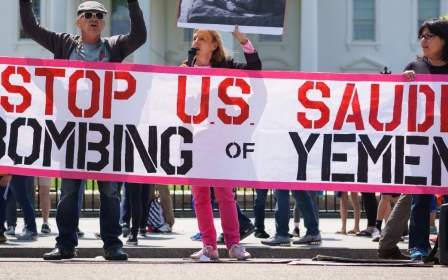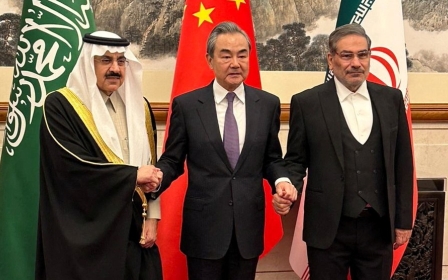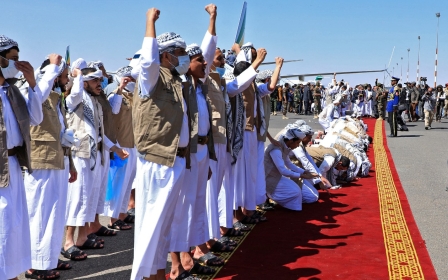Jeremy Corbyn, Ilhan Omar join hundreds calling for an end of war in Yemen
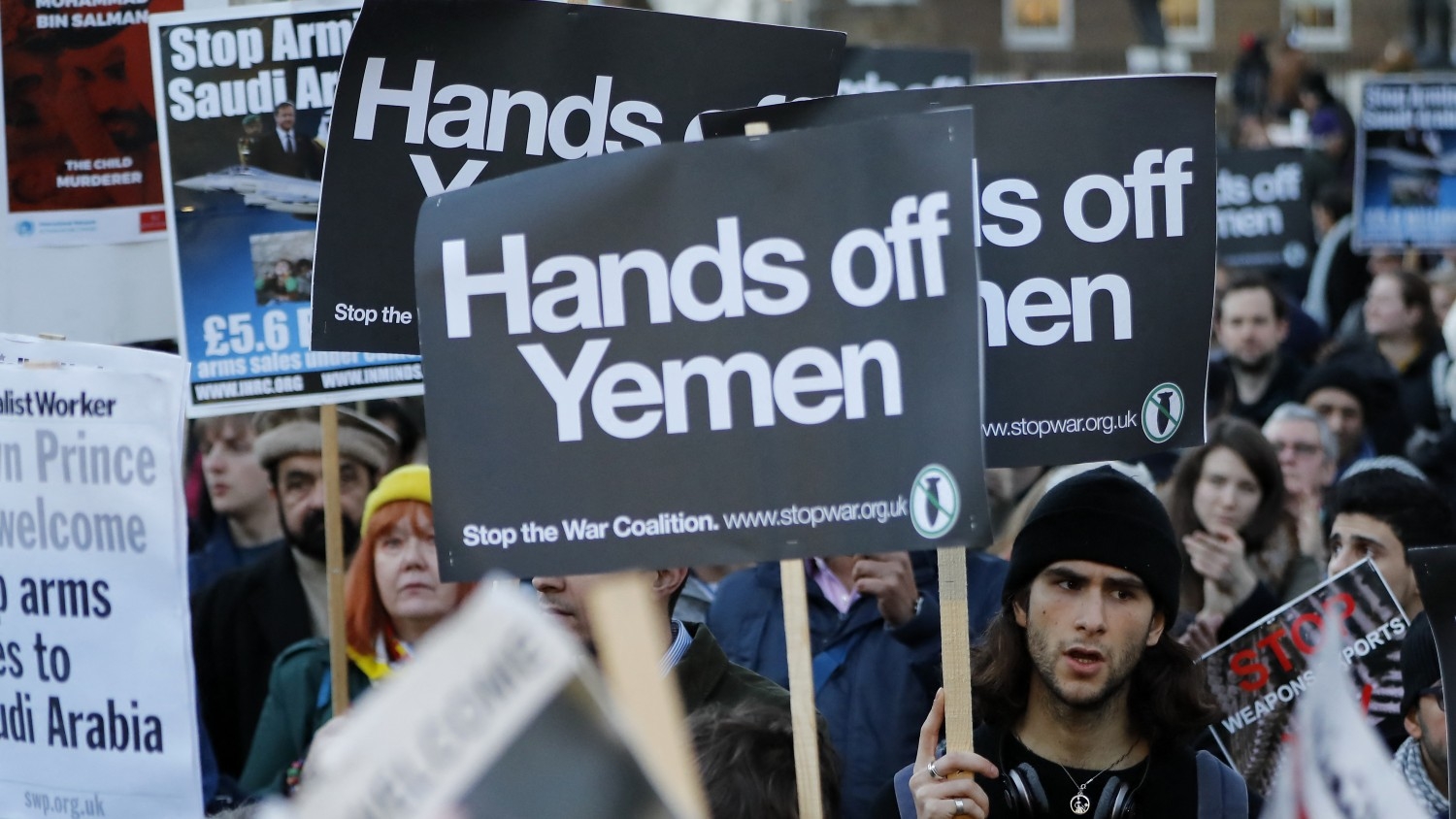
A Chinese-brokered landmark diplomatic deal between Saudi Arabia and Iran may have enhanced the prospect for an end to the war in Yemen, but there will be no peace before all perpetrators of the long-running war are held accountable, and the US ends its support for the Saudi-led coalition's war efforts.
This was the overwhelming message of an online rally organised by activists from several countries on Saturday that marked eight years since the beginning of the Saudi-led bombing campaign in Yemen. The rally also called for a permanent end to hostilities in a conflict that has killed more than 150,000 and left the Middle East's poorest country in tatters.
Hundreds of people including anti-war activists and politicians, came together to build momentum after a recent bill was introduced in Congress that would require President Biden's administration to report on Saudi Arabia's human rights record and possibly cut off all US security assistance to the kingdom.
The ultimate goal for the groups, however, is to put an end to American support for the war in Yemen altogether.
'Make no mistake: there must be consequences for any war crimes, for any atrocities and any targeting of civilians in this war'
- Ilhan Omar, US congresswoman
"As the US-supported Saudi-led war on Yemen enters its ninth year today, we are demanding that our lawmakers listen to their constituents and end US support for the war. They should not be granting the wishes of brutal foreign governments and arms industry lobbyists," Aisha Jumaan, president of the Yemen Relief and Reconstruction Foundation, told Middle East Eye.
"Millions of Yemeni civilians have endured horrific atrocities and hardships due to the war and the imposed blockade on Yemen."
Keynote speakers included US Representative Ilhan Omar, former UK Labour Party leader Jeremy Corbyn, and anti-war activist Chris Nineham, a political activist and founder member of the Stop the War Coalition.
Several other US lawmakers, like Representatives Ro Khanna, Pramila Jayapal, and Rashida Tlaib, sent in pre-recorded messages expressing their commitment to helping end the war in Yemen.
In her remarks, Omar said the path to justice was predicated on accountability for the crimes committed and also for the United States’s own role in the conflict.
"Make no mistake: there must be consequences for any war crimes, for any atrocities and any targeting of civilians in this war," Omar said.
“We know that without justice there can never be peace,” Omar added.
'Worst humanitarian disaster'
Yemen has been wracked by conflict since 2014, when the Houthi rebel movement seized much of the northern part of the country as the government of President Abd Rabbuh Mansour Hadi fled.
In 2015, a coalition of regional Arab countries led by Saudi Arabia launched an offensive in Yemen in support of the Hadi government and to roll back Houthi gains. The coalition began a bombing campaign and led an air and naval blockade of the country.
Eight years in, the conflict has killed hundreds of thousands of people and led to what the United Nations refers to as the world's worst humanitarian crisis.
On Saturday, the World Health Organisation (WHO) reported that over two-thirds of Yemen’s population – 21.6 million people – were in acute need of humanitarian assistance.
It also described the country’s health system as failing to meet the population’s needs. Only 54 percent of health facilities are fully functioning, while 46 percent are only partially operating or entirely out of service, the WHO said in a statement.
“The world cannot continue to ignore Yemen. We call on expanded and sustained international support to health systems and the brave frontline health workers,” said Dr Ahmed al-Mandhari, WHO regional director for the Eastern Mediterranean.
“Our ultimate goal is to build a safer and healthier future for all Yemenis. Yet health cannot be attained without peace. Peace is possible and it is the only solution, but it needs everyone’s commitment.”
Last year, a ceasefire between the warring parties was put into effect. The truce expired in October, and while major fighting has not resumed, Yemeni advocates say that conflict could resurge at any moment.
"As long as Yemen is not free from occupation, and Yemenis are not free to choose their own destiny, we have the obligation to continue fighting against the injustices imposed on them," Shireen al-Adeimi, a Yemeni American academic and assistant professor at Michigan University, said during Saturday's rally.
"Let's urge Congress to take back its constitutional powers and demand an end to US support for this war."
Western hypocrisy
US support for the war has been heavily criticised by rights groups, following reports of civilian deaths from American-made weapons.
The United States had began to offer support for the Saudi-led coalition by providing weapons, offering mid-air refuelling for Saudi planes, and offering targeting assistance for coalition air strikes.
Soon after coming into office in 2021, President Joe Biden announced the US would end support for offensive operations in the coalition's war in Yemen, but lawmakers have since raised questions and concerns about what the term offensive means.
Meanwhile, a recent report in January by the charity Oxfam found that Saudi-led coalition air strikes using US and UK-supplied weapons were responsible for killing 87 civilians in Yemen between January 2021 and the end of February 2022.
Jeremy Corbyn noted that the lack of attention Yemen has received in the media demonstrated how central the arms trade played in the concerns of the western world.
"Challenging the whole narrative about Yemen we also understand we have to challenge the whole narrative about arms sales and the notions of leadership in the world," Corbyn said.
The UK has licensed at least £7.9bn ($9.6bn) in arms to Saudi Arabia across 547 licences since 2015, while the US currently has about $126bn in active government-to-government arms sales with Saudi Arabia.
Anti-war groups, activists, and lawmakers have been pushing legislative efforts to end support for the Saudi-led coalition for years, and multiple war powers resolutions have been introduced with varying degrees of effect.
At the end of 2022, in an attempt to fully end US involvement in the war, Senator Bernie Sanders attempted to force a vote on a war powers resolution. However, Sanders pulled the measure after the White House reportedly planned to veto it.
Chris Nineham, a political activist and founder member of the Stop the War Coalition, said during Saturday's rally that the lack of action to end the war in Yemen demonstrated the hypocrisy of western governments.
Nineham said that the West’s singular focus on critiquing Russia for its invasion of Ukraine, as well as demonising and sanctioning Iran, while unashamedly continuing to work closely with Saudi Arabia showed that western foreign policy was not driven by humanitarian concerns.
“It's not driven by some consideration about the rights or the democratic possibilities and futures of various people around the globe. It is deeply cynical. It's based on power projection, it's based on an assessment and absolutely resolute pursuit of corporate interests by our government,” Nineham said.
Middle East Eye propose une couverture et une analyse indépendantes et incomparables du Moyen-Orient, de l’Afrique du Nord et d’autres régions du monde. Pour en savoir plus sur la reprise de ce contenu et les frais qui s’appliquent, veuillez remplir ce formulaire [en anglais]. Pour en savoir plus sur MEE, cliquez ici [en anglais].


